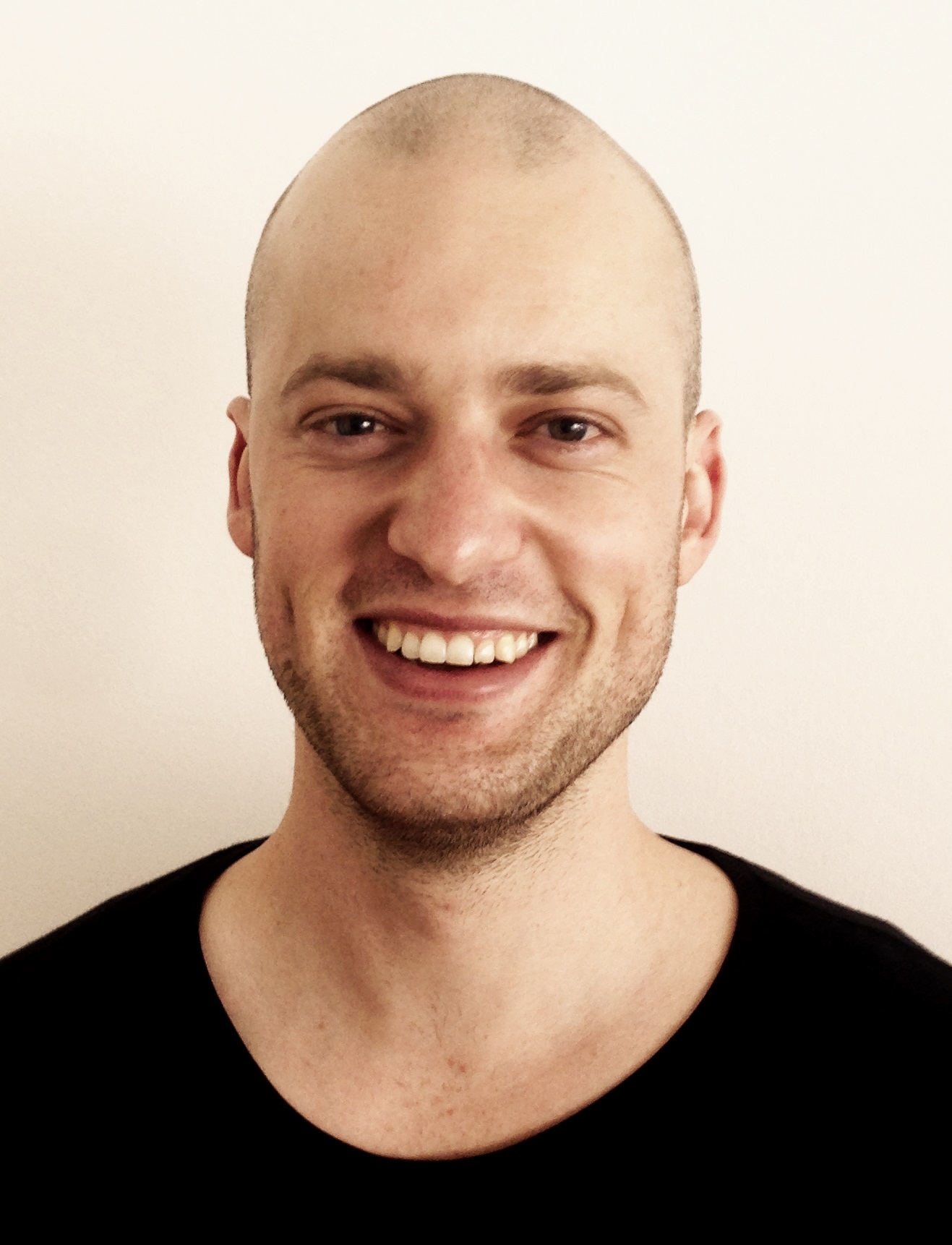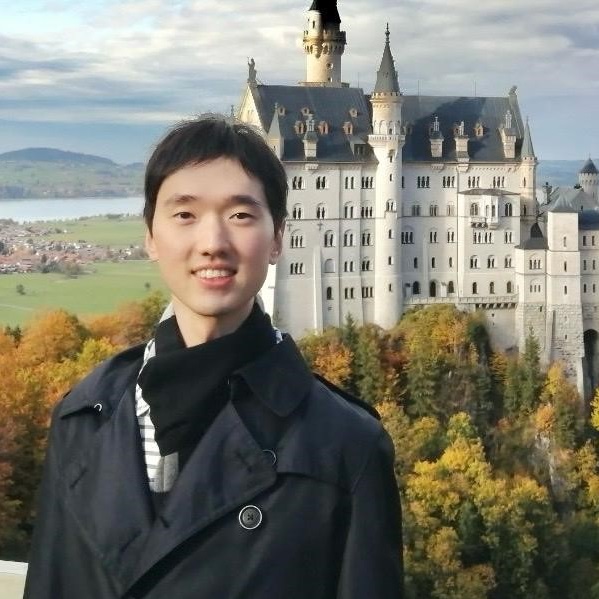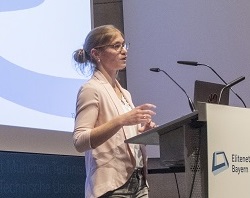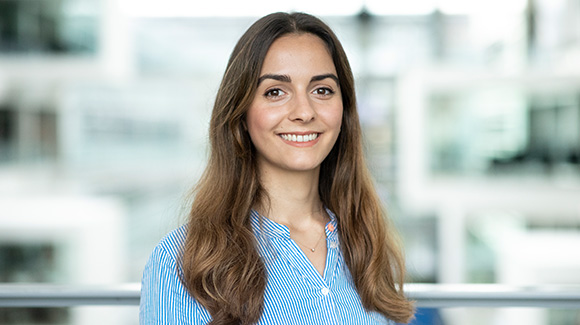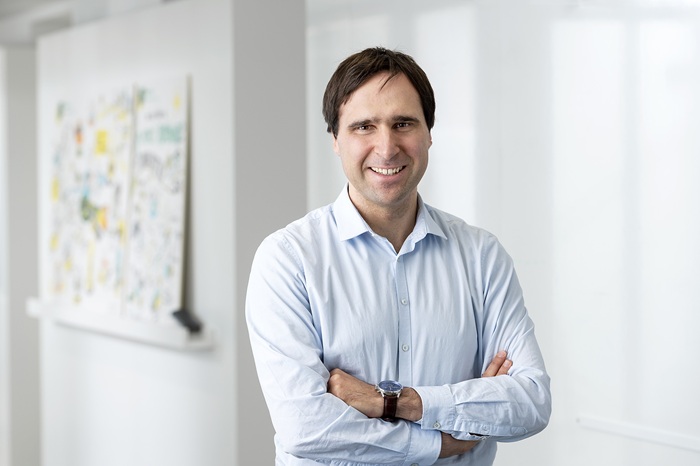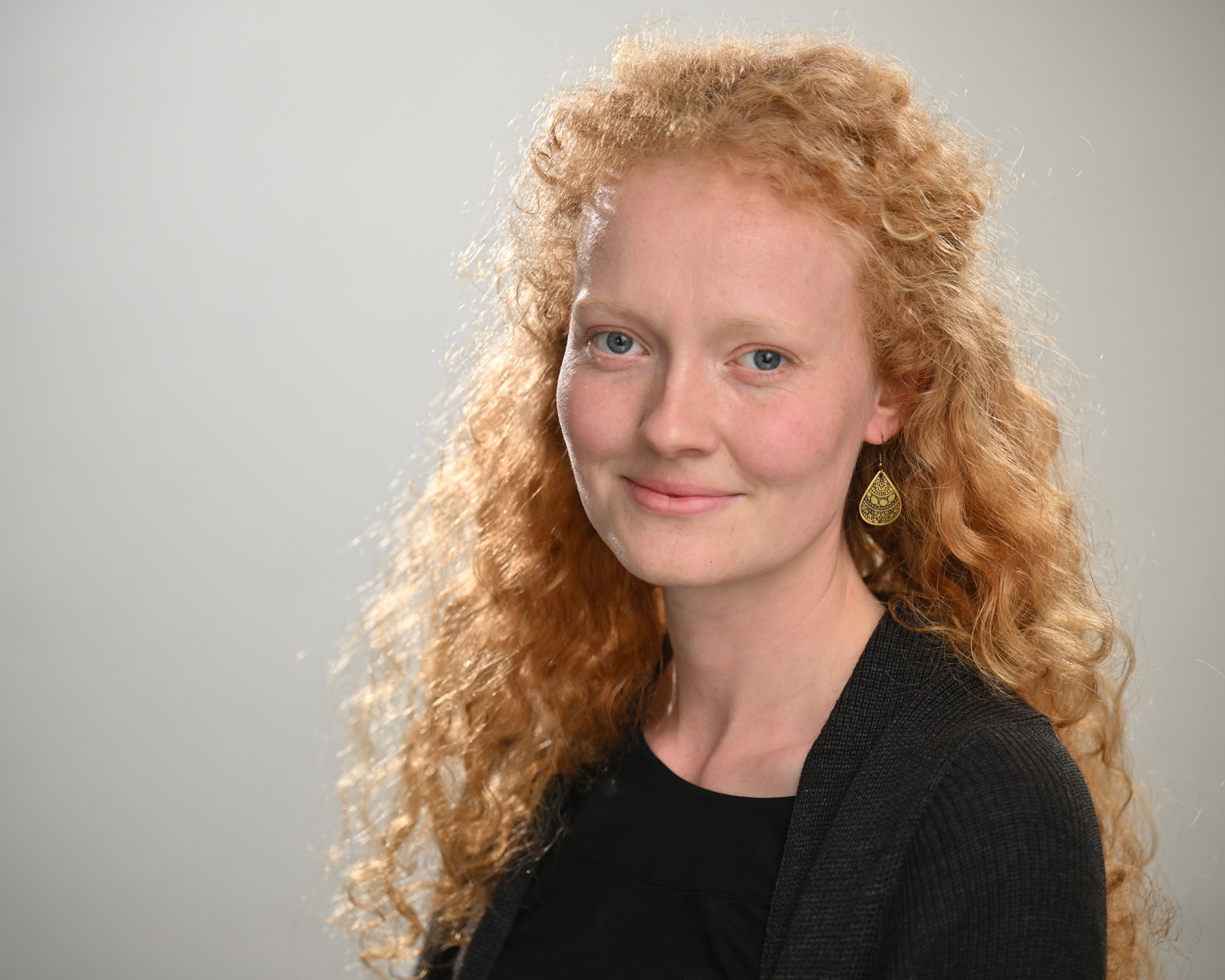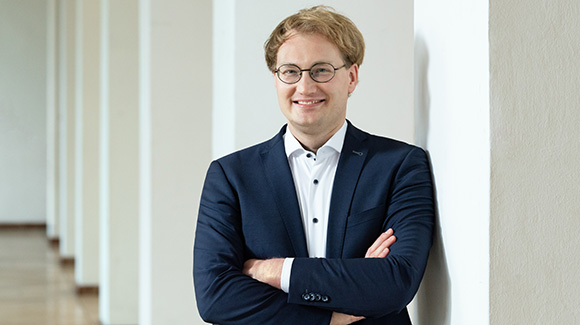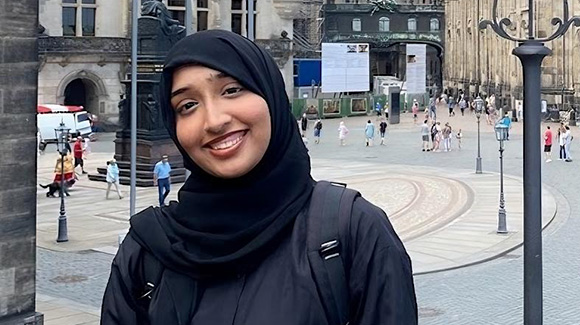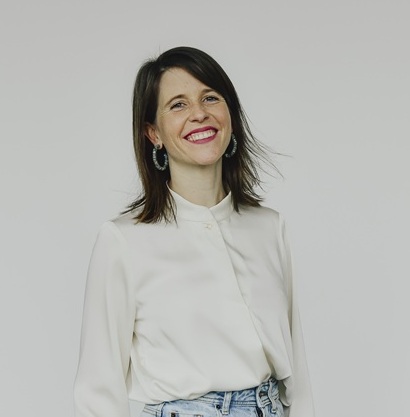
The Elite Network gave me the opportinity to pursue my passion and conduct research into the toxic influence AI has on the lives of marginalized people today – and, above all, how this can be changed.
Eva Gengler • International Doctorate Program
Eva Gengler is many things at once: a scientist, entrepreneur, artist – and a woman who is passionately committed to a more equitable digital future. Since 2021, she has been pursuing her PhD at the International Doctorate Program "Business and Human Rights" at FAU Erlangen-Nuremberg. At the same time, she is co-founder and managing director of enableYou Consulting GmbH, an organizational consulting firm that aims to guide companies toward self-organization. In her small but exquisite art label "Flavours of Colour," she markets her own art prints and finds creative balance – even if time for that is currently scarce.
Her research focuses on the interface between artificial intelligence and power. In her master's thesis, she already dealt with the use of AI in recruiting at Amazon – an area where algorithmic discrimination is particularly evident. As part of her doctoral thesis, which is nearly completed, she is investigating why AI systems develop bias, even though they are generally considered neutral. Eva Gengler's research shows how existing unjust power structures are not only replicated by AI, but often reinforced – for example, when women's resumes are systematically disadvantaged by AI in application processes or when visual AI models reproduce stereotypical gender images. "Existing structures are thus automated by artificial intelligence," explains Eva Gengler. This is where she steps in with feminist AI: "The status quo is not fair and we have to change it. There is an activist element to this."
To achieve this change, Eva Gengler is working on AI governance and testing ways to feed AI with feminist values, not only to make AI more fair, but also to change conventional power and social structures for the better. For example, she enthusiastically talks about new approaches to application processes in which AI is not used to select suitable applicants for a specific position, but rather in which there are no longer any job advertisements in the traditional sense. Instead, the aim is to develop a job platform where both applicants and companies create a profile and answer various questions. The platform then uses these profiles to find the right match between the person and the company. She finds support for her ideas on feminist AI not only in networks such as the feminist AI community, but also in the environment of the International Doctoral Program.
Joining the Elite Network of Bavaria was a milestone for her. "The decision to enroll in this doctorate program was one of the best I've ever made," she says today. The funding not only gave her the freedom to pursue her passion, but also enabled her to make valuable contacts – both with renowned scientists and with other doctoral candidates: "The internationality and interdisciplinarity were a huge benefit for me, and the connections I made with people are very valuable to me."
In addition to her academic work, Eva Gengler is also an active keynote speaker and is increasingly dedicated to the education oft he public on AI. This commitment is reflected, among other things, in her nomination for the BRIGITTE Award 2025 in the Future Economy category, her award as BayFiD Role Model by the Bavarian Ministry of Digital Affairs (2024), and her inclusion in the portrait series "Bayerns Frauen – Jede anders stark" (Bavaria's Women – Each Strong in Her Own Way) by the Ministry of Social Affairs. In 2023, she received the Hermann Gutmann Prize for outstanding scientific achievements. Despite these awards, she does not consider herself part of the "elite" in the traditional sense. The term was initially quite strange to her, almost intimidating. But during her time at the Business and Human Rights Doctorate Program, her understanding has changed: For her, the Elite Network of Bavaria is not about exclusion, but rather an inspiring environment with committed people who learn, research, and support each other.
What drives her is a deep-rooted sense of justice. "I see a lot of injustice," she says. Her work is permeated by the conviction that technology is not a neutral space—and that it is our responsibility to shape it in such a way that it does not further cement injustice. "Feminism provokes preople," she says confidently. But that is precisely the strength of her position: she questions the status quo and provides food for thought on how we as a society should deal with AI - a task she has also made a priority for her future career. Whether she will pursue this goal as a researcher at the university or whether she would prefer to work in a company, with the option of also being self-employed and active as an activist on the side, Eva Gengler has not yet decided.
Eva Gengler is a prime example of a new generation of female scientists who not only want to conduct research, but also want to shape the future – courageously, creatively, and with the clear goal of making the world a fairer place.


